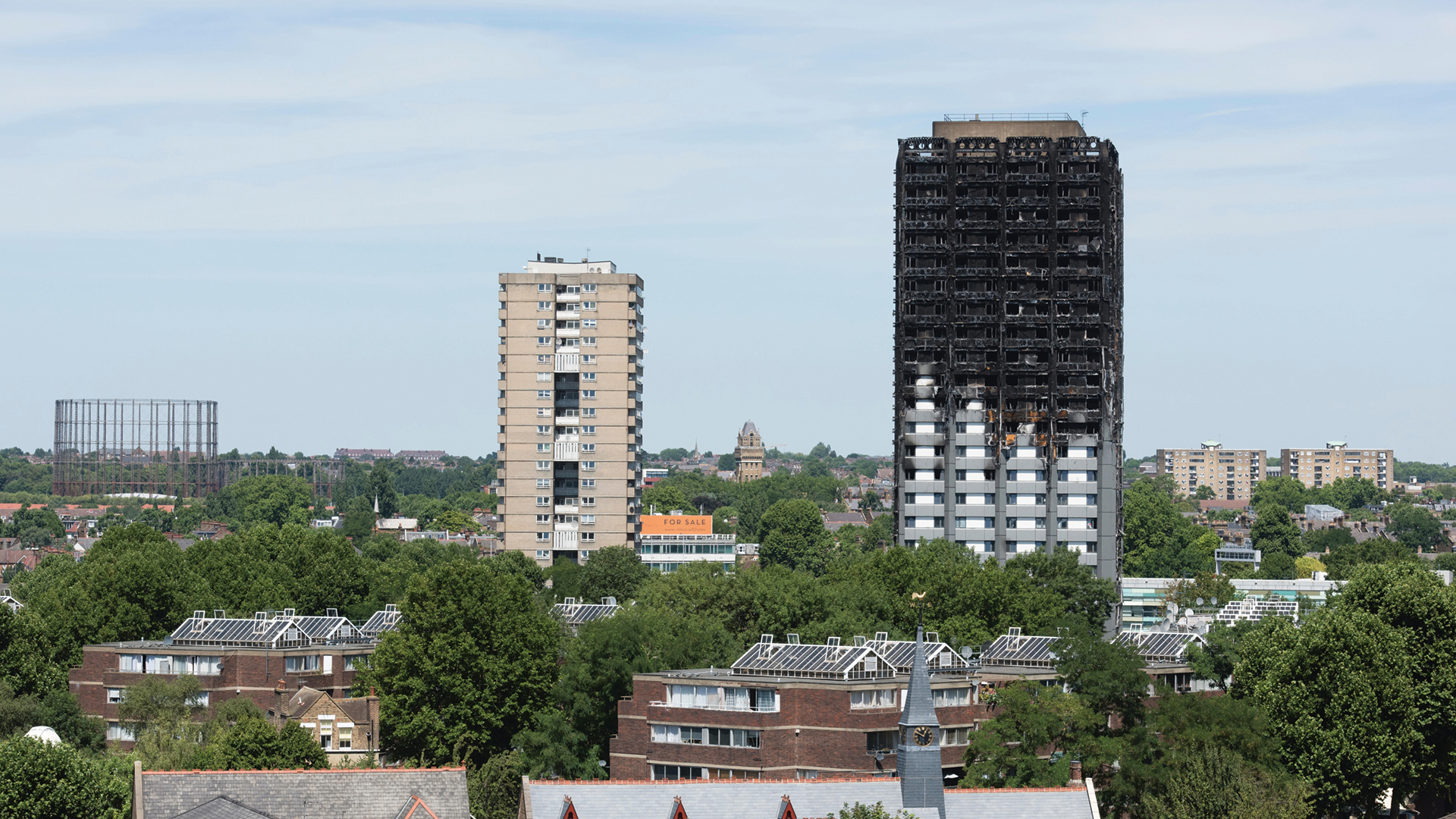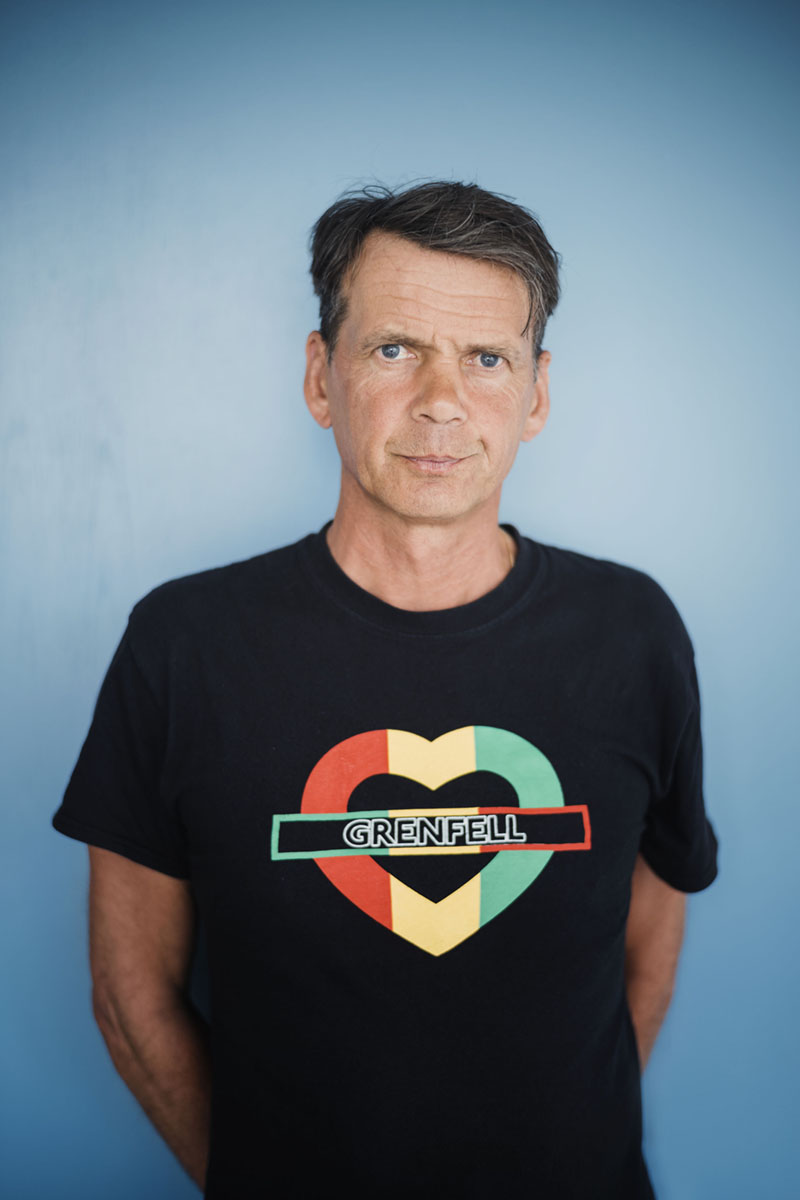It was around 1am when Ed Daffarn woke to the sound of an alarm on the 16th floor of Grenfell Tower. He didn’t get out of bed at first. His neighbour had probably burned some toast, he concluded sleepily. Five minutes later, however, he heard shouting in the communal hallway. At 1am, he thought to himself? Something was up. He wandered out of his bedroom, opened the front door and was confronted with thick plumes of smoke.
“I closed the door and thought to myself, the advice we’ve been given is to stay put,” Daffarn says, recalling the harrowing night that a blaze ripped through his Grenfell home. Whether to stay or whether to go? At that precise moment, Daffarn’s mobile started to ring. It was his neighbour – not inside his flat burning a midnight snack, but outside the 24-storey building, standing on the pavement shouting up at the flames. “Get out,” he yelled, “get the fuck out.”
Wrapping a wet towel around his mouth, Daffarn tried to leave, but the smoke was overwhelming him and he struggled to find the stairs. In that split second between cognisance and unconsciousness, when the towel was dropped, Daffarn felt a pair of hands grip his legs. He was being pulled. “I had a miraculous escape,” he says, nearly five years to the day that he was rescued. “The firefighter that got me out said there was a million to one chance that they found me.”
When a person’s wellbeing is so closely linked to getting truth and justice, it’s hard to move on, Daffarn says. “I’ve always described the fire as a tragedy in three acts: the way we were treated before the fire, the way we were treated on the night of the fire, and then the aftermath, being abandoned in the streets.” That sense of abandonment still prevails. “What happened at Grenfell was entirely predictable,” he says with a surety that wasn’t acquired with the benefit of hindsight.
Daffarn lived in Grenfell Tower for 20 years and raised complaints about the building’s fire safety time and time again. Eight months before the fire would claim the lives of 72 of his fellow residents, he wrote on the Grenfell Action blog, a website which he co-founded: “Anyone who witnessed the recent tower block at Shepherds Court, in nearby Shepherd’s Bush, will know that the advice to remain in our properties would have led to certain fatalities and we are calling on our landlord to reconsider the advice that they have so badly circulated.” And it wasn’t just the emergency ‘stay put’ advice they had been given. There was the door that had remained unfixed. There were the concerns about escape routes in the event of an emergency.
Despite being made to feel like a troublemaker in the years that preceded the fire, Daffarn truly believed that the shock of what had happened would act as some kind of catalyst for societal change. Hopes were pinned on the government’s social housing white paper – commissioned in the aftermath of the blaze – and on real reform that would finally offer millions of tenants better protections. Yet only last month, bereaved relatives were reported to be “enraged” by the government’s plans to keep the controversial ‘stay put’ policy in place, a decision that goes against the recommendation from Phase 1 of the Grenfell Tower Inquiry.










